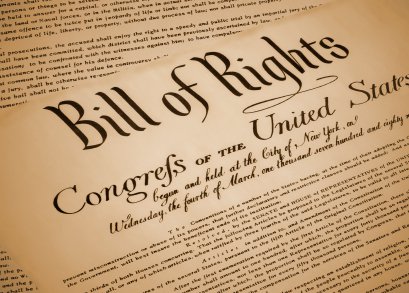Senate Defeats Amendment Protecting Internet and Phone Privacy

After the terrorist attacks of September 11, 2001, the U.S. government's ability to identify and intercept national security threats became paramount. With this concern came the Patriot Act and its inclusion and extension of the Cold War-era FISA, the Foreign Intelligence Surveillance Act.
Originally signed by President Jimmy Carter in 1978, FISA allowed electronic surveillance of individuals located inside the U.S. who were suspected of espionage. According to the law, the government could eavesdrop for a period of one year without a warrant if the subjects were not American citizens. If the government's activities included eavesdropping on an American citizen, the government was required to obtain a warrant from a judge within 72 hours.
FISA came to national attention during President George W. Bush's pursuit of the War on Terror. In 2005, a New York Times story reported that Bush had initiated a domestic surveillance program of wiretapping phones and reading e-mails of U.S. citizens, on the justification of tracking potential terrorists, but had not been using a judicial warrant as the 1978 act required. Bush's program became colloquially known as "warrantless wiretapping."
FISA was amended in 2008 with warrantless wiretaps in place and participating telecommunications companies immune from prosecution. FISA was renewed by the US Senate on Thursday with its 2008 amendments due to expire and included provisions that affect Americans' internet and phone privacy.
Led by Democratic California US Senator Dianne Feinstein, chairwoman of the Senate Intelligence Committee, the 2012 renewal of FISA is essentially unchanged from the 2008 version, but also includes the government's authority to read e-mails and text messages without a warrant.
To critics of FISA, Feinstein replied, "There is a view by some that this country no longer needs to fear an attack." However, when pressed on the potential surveillance of Americans, Feinstein did not give a definitive answer, but only said, "No one should think the targets are US persons. . . . Thirteen members of the intelligence committee who have voted on this do not believe this is a problem."
Feinstein and Saxby Chambliss, the committee's Republican vice chairman, issued a joint statement that said, "This necessary legislation will continue to keep America safe by enabling our intelligence community to identify and neutralize terror networks before they harm us either at home or abroad," but also that, "this legislation includes strong privacy protections."
Unconvinced of the "strong privacy protections," Oregon's U.S. Senators, Jeff Merkley and Ron Wyden, both Democrats, introduced amendments that were ultimately defeated, that would have allowed more transparency for the process.
Also opposing the renewal was Kentucky Senator Rand Paul on grounds that the warrantless wiretaps violate the protections US citizens receive by the Fourth Amendment against unreasonable searches and seizures:
"I think most Americans would be shocked to know that the Fourth Amendment does not protect your records if they're banking, internet or Visa records. A warrant is required to read your snail mail and to tap your phone, but no warrant is required to look at your e-mail, text or your internet searches. They can be read without a warrant. Why is a phone call more deserving of privacy protection than an e-mail?"
Senator Paul's amendment received twelve votes: nine Democrats, including Wyden and Merkley, and only two Republicans, Mike Lee of Utah and Dean Heller of Idaho. The FISA renewal passed 73-23 and will be in effect until 2018 once signed by President Obama.
Since shortly after the 2001 terrorist attacks, Americans have been debating the balance of liberty and security. Many are familiar with founder Benjamin Franklin's quote, "Those who would give up essential Liberty, to purchase a little temporary Safety, deserve neither Liberty nor Safety," as an illustration of this balance.
In the midst of partisan intransigence on the fiscal cliff, the renewal of FISA was debated and passed rather quickly and quietly. With bipartisan support, the extension of FISA is about to officially reach into Americans' e-mails and text messages. Americans witness their government does have the ability to work together, but in the view of many, only on a bill which violates their rights to privacy.




